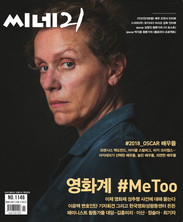영화제들은 언제쯤 심사위원단을 좀더 진지하게 생각하게 될까? 제56회 베를린국제영화제(2월9∼19일)는 심사위원 때문에 명성을 손상시켜버린 가장 최근의 일례다. 이번 영화제는, 적어도 활기라고는 찾아볼 수 없었던 지난해와 비교해서는 전반적으로 만족스러운 해였다. 유일하게 눈에 띄는 취약점은 아시아권 프로그래밍을 제대로 하지 못하는 베를린의 계속되는 무능함이었다(하지만 이것은 또 다른 이야기다).
그러다가 경쟁부문 심사위원단의 수상 결과가 나왔다. 최고상인 황금곰상은 보스니아 감독 야스밀라 즈바니치의 첫 장편 <그르바비차>에 돌아갔고, 심사위원상과 최우수 데뷔작품상은 덴마크 감독 페르닐레 피셔 크리스텐센의 <엔 소프>에 돌아갔다. 둘 다 존중할 만한 데뷔작이었지만, 혁신적인 스타일이나 내용을 전혀 보여주지 못했으며, 상영시에도 별다른 열광적인 반응을 얻어내지 못했다.
보편적인 기대에 의하면 황금곰상은 경쟁부문에서 가장 화제가 된 영화 중 하나였던 마이클 윈터보텀 감독의 다큐드라마 <관타나모로 가는 길>이 특별히 영화와 핫이슈가 되는 정치문제를 잘 섞은 전형적인 “베를린다운” 영화로 수상이 예측됐다. 그러나 영화는 최고감독상을 수상하는 데 그쳤다. 또 다른 세개의 상은 독일 배우에게로 돌아갔다. 물론 독일영화가 꽤 잘 나온 한해이긴 했다. 그렇지만 상을 세개나 가져가다니?!
<그르바비차>가 황금곰상을 수상하면서 심사위원들의 의견이 분열된 결정의 지표들을 잔뜩 내비쳤다. 아마도 몇몇 심사위원들은 윈터보텀이 2년 전 다큐드라마 <인 디스 월드>로 황금곰상을 탔기 때문에 이렇게 빨리 다시 황금곰상을 탈 필요가 없다고 생각했을지도 모른다. 그러나 문제는 이거다. 과연 심사위원들은 그렇게 “정치적인” 결정을 내릴 수 있는 권한을 가져야 하는지, 아니면 그냥 의무대로 최고의 영화와 예술인들에게 최고의 상들을 줘야 하는지 말이다.
경쟁부문에서 최고의 영화 중 몇몇 작품들, 즉 로버트 알트먼 연출의 인생을 지지하는 앙상블 캐스트작 <프래리 홈 컴패니언>과 클로드 샤브롤의 사법드라마 <힘의 코미디>는 빈손으로 돌아갔다. 심사위원들은 이 두 베테랑 감독들이 더이상 상을 탈 필요가 없다고 본 것인가?
대부분의 영화제 위원장들은 심사위원들을 여전히 유명인사들이 모인 케이크 위의 체리로 여긴다. 유명한 이름을 몇몇 넣고, 동양 혹은 제3세계 감독을 적절하게 섞어 넣고는 사진 찍을 기회를 기다리는 것이다. 영화관에서 <그르바비차>나 <엔 소프>를 보러 티켓을 살 사람이 거의 없을지라도, 안타깝게도 역사책에 기록되는 것은 심사위원들의 결정이며, 이것으로 각 해의 영화제가 기억되는 것이다.
가장 중요한 것은 심사위원들은 그들이 받은 지시만큼만 적절한 결정을 내린다는 것이다. 형사사건의 경우 배심원은 결정을 내릴 판단의 준거를 재판관에게 받아들인다. 영화제 심사위원들에게는 이런 일이 거의 없다.
만약 3년 전 로카르노 심사위원단이 경쟁부문에서 최고의 영화에 단순히 표를 던지라는 지시를 받았더라면(국제영화제작자연맹(FIAPF)의 분류상 ‘특화된 영화제’에서 ‘일반경쟁 영화제’로 전환된 만큼 요구되는 대로), 로카르노는 김기덕 감독의 <봄 여름 가을 겨울 그리고 봄>에 상을 주지 않아 본 큰 낭패를 면할 수도 있었다. 심사위원의 명백히 정치적인 결정, 즉 데뷔 감독을 우선으로 두면서 경험 많은 감독을 고의적으로 무시해버리는 처사는 영화제에 물릴 수 없는 흠집을 남겼다.
유럽과 독일 영화산업의 관료 출신인 베를린 집행위원장 디이터 코슬릭은 심사위원단의 결정에 만족하고 있을지도 모른다. 분명 허리 구부려 정치적으로 올바른 결정들을 내리긴 한다. 그렇지만 코슬릭은 작고 안락하며, 등을 토닥거려주는 유럽의 벽지가 아니라 세계 수준의 국제영화제가 되어야 할 곳에 베테랑 감독들을 끌어들이는 데 어려움을 겪더라도 불평해선 안 될 것이다.
When will film festivals learn to take their juries more seriously?
The latest example of a jury diminishing an event's reputation was at the 56th Berlin Intl. Film Festival (9-19 February). It was, overall, a satisfying Berlinale, at least compared with the previous, rather lacklustre year, and the only glaring weakness was Berlin's continuing inability to get its Asian programming right. (But that's another story.)
Then came the awards by the Competition jury. Top prize, the Golden Bear, went to "Grbavica," a first feature by Bosnian director Jarmila Zbanic, and two awards, the Jury Prize and Best First Feature, to "A Soap," by Danish director Pernille Fischer-Christensen. Both are respectable debuts but not at all innovative in either style or content, and neither had generated much heat when screened.
The Golden Bear had generally been expected to go to Michael Winterbottom's docudrama "The Road to Guantanomo," which had been one of the Competition's most talked-about movies, especially for its typically "Berlin" mix of cinema and hot-issue politics. In the event, it won Best Director prize.
Three of the other awards went to German actors. Yes, it was a good year for German cinema, but THREE prizes?!
"Grbavica" winning the Golden Bear had all the signs of a split jury decision, and probably some jurors felt that Winterbottom, having won the Golden Bear two years ago for docudrama "In This World," didn't need to win it again so soon. But here's the rub: should juries be allowed to make such "political" decisions, or should they just do their job and give the best prizes to the best movies and artists?
Some of the best films in the Competition - Robert Altman's life-affirming ensembler, "A Prairie Home Companion," and Claude Chabrol's judicial drama, "Comedy of Power" - went away empty-handed. Did the jury decide the two veteran directors didn't need any more awards?
Juries are still seen by most festival chiefs as the cherry on the celebrity cake: throw together a few famous names, add an Oriental or Third World filmmaker to make the mix look correct, and wait for the photo opportunities. Unfortunately, it is juries' decisions that go down in the history books and by which festival years are remembered, even though few people are ever going to buy tickets to see "Grbavica" or "A Soap" in cinemas.
Most importantly, juries are only as good as the instructions they are given. In criminal cases, a jury takes instructions from the judge on the criteria by which it should make its decision. This too rarely happens with festival juries.
If, three years ago, Locarno's jury had been instructed to vote simply on the best film in competition (as it was required to do by the festival's change of FIAPF category, from a specialised to general competitive festival), Locarno could have been spared the major embarrassment of Kim Ki-duk's "Spring, Summer..." not being prized. That obviously political decision by the jury - to deliberately ignore a seasoned director in favour of newcomers - did the festival irreperable harm, especially in Asia.
Maybe Berlinale boss Dieter Kosslick, whose background is as a bureaucrat in the European and German film industries, is happy with his jury's decisions. They are certainly back-bendingly politically correct. But Kosslick shouldn't complain in the future if he can't attract veteran names to what should be a world-class international festival, not a cosy little back-slapping European backwater.







